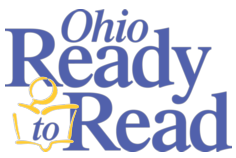Library Programs and Student Learning
Public Library programs have always been a source of fun, educational content for families. Starting with programming for the youngest library visitors, libraries can help families prepare for school success even before the child enters kindergarten. This section highlights three areas of programming that libraries can use to support student learning: early literacy programs, school-age and teen programs, and summer library programs.
Early Literacy Programs
We already know that literacy-rich early experiences contribute to the reading readiness of young children and to the developing reading proficiency of K-3rd graders. Libraries play a key role because:
- Library storytimes promote early literacy skills in a fun, social environment.
- Children's library environments engage multiple senses and promote self-directed, experiential learning.
- Children's library staff interact with parents and caregivers to help them learn simple early literacy practices that get their children ready to read.
Under Ohio's Learning Standards, children as young as kindergarten are asked to engage with text (e.g. books) in various ways. They are expected, with support, to identify the main topic of a story, retell key details, describe connections, infer meaning from words and illustrations, describe the relationship between illustrations and text, and notice and think about nonfiction features.
A few enhancements can make storytimes and early literacy activities into stepping stones to Ohio's Learning Standards:
- Include more nonfiction picture books in storytimes and preschool programs.
- Pair fiction and informational books on the same topic.
- Read selectively if the text is too long or difficult for storytime. A chapter or a page is fine.
- Ask questions in storytime that require children to refer back to the text and pictures in the story for evidence.
- Point out aspects of craft and structure in storytime books, directly for the children, and as a model for parents.
- Use the same book in different ways over several weeks/sessions.
- Integrate STEAM activities into your preschool programming (Check out ALSC’s Blog for ideas).
- Use asides to share with parents and caregivers the ways your storytime practices support Ohio's Early Learning and Development Standards.
Resources:
INFOhio Early Learning Portal
Ohio's parents and educators have access to the INFOhio Early Learning Portal to help little learners ages 3-5 prepare for school and their futures. The Early Learning Portal contains links to over 50 websites and apps chosen and evaluated by educators and librarians with expertise in learning and literacy.
Ohio's Early Learning and Development Standards (ELDS)
The Language and Literacy ELDS align with Ohio's Learning Standards in English Language Arts and provide a gateway to the kindergarten standards for young children.
Early Learning Family Resources
The Ohio Department of Education & Workforce provides an array of resources for families, including a kindergarten readiness checklist; a list of developmental stages and skills from birth to age 5; advice to help children transition from home to school; and tips on how to communicate effectively with teachers and to solve school problems together.
See the Storytime Ideas page for more ideas and resources.
School Age and Teen Programs
The emphasis on informational texts in the Ohio Learning Standards is intended to help students learn to compare, integrate, synthesize, and evaluate information, and connect it to the wider world. Students are asked to think, infer, connect, draw evidence, and to apply what they have read to real-world situations. Here are some ideas that you can use to promote these skills in your school-age and teen programming:
- Start a nonfiction book club or do author studies in the public library. Or sponsor a community read for intermediate, middle, and/or high school students. Choose to Read Ohio (CTRO) promotes Ohio authors and encourages people to discuss and explore books together. Ready-made readers' toolkits provide discussion questions, program ideas, and author biographical and contact information. CTRO features several nonfiction books at the tween/intermediate level.
- How about an online information scavenger hunt or a spot-the-fake-website contest? Ohio's Learning Standards increase the amount of student writing using sources, and emphasize the use of evidence to inform or to make an argument. Consider sneaking some information literacy guidance into your programming.
- Host STEM (Science, Technology, Engineering, Math) programs in the library. This can help make these sometimes daunting content areas accessible, approachable, and fun. STEM programs can be developed for any age from preschool to teen. You will also see the term STEAM, which integrates Art into STEM activities. The STEM Libraries website and, STAR_net's STEM Activity Clearinghouse can help get you started.
Summer Library Program
Whether you call it Summer Reading Program, Summer Learning Program, Summer Challenge, or anything else, your summer programming and reading/activity challenges encourage students to practice reading skills during out-of-school time to maintain proficiency. When you promote your summer library program to parents and educators, lead with the message that it supports student learning. These resources will help you promote the value of your summer activities and connect them to the skills and knowledge children need to succeed in school:
Summer Reading Research and Best Practices
Resources curated by the State Library of Ohio to help librarians communicate the benefits of summer reading programs and advocate for their summer activities.
Get Serious about Summer Reading
The National Education Association compiled this toolkit that includes links to several research reports on the value of library-based summer reading programs.
Summer Reading: Closing the Rich/Poor Reading Achievement Gap by Richard Allington and Anne McGill-Franzen
This book addresses summer reading loss and research-based strategies to improve reading proficiency and increase children's access to print material.
